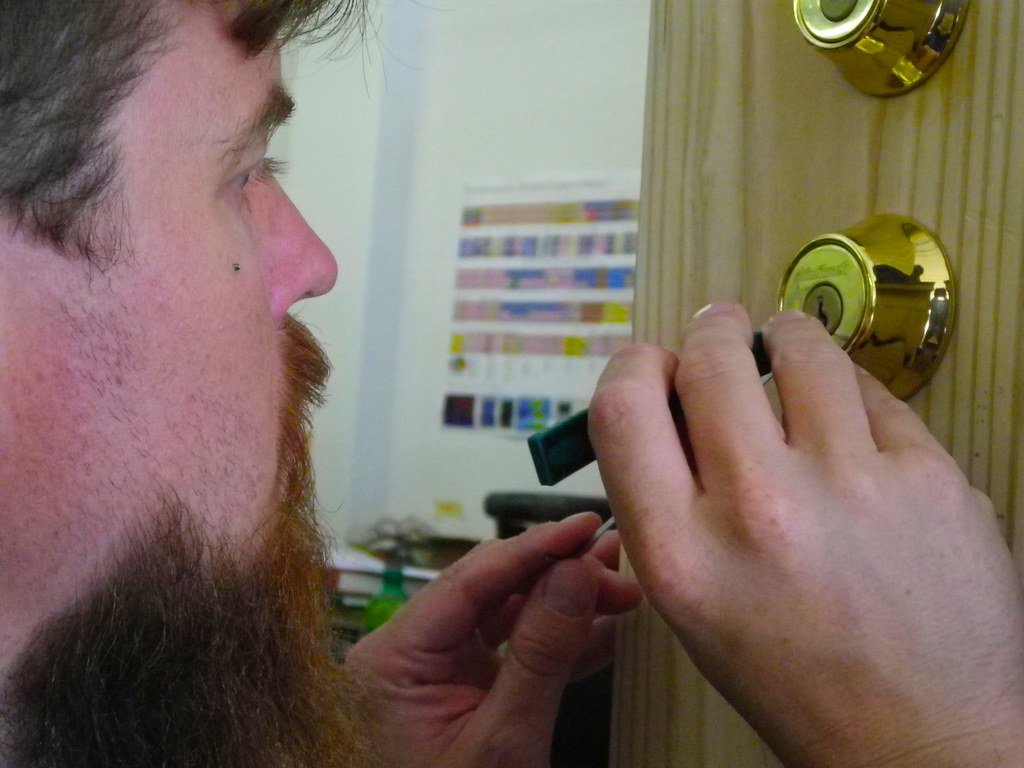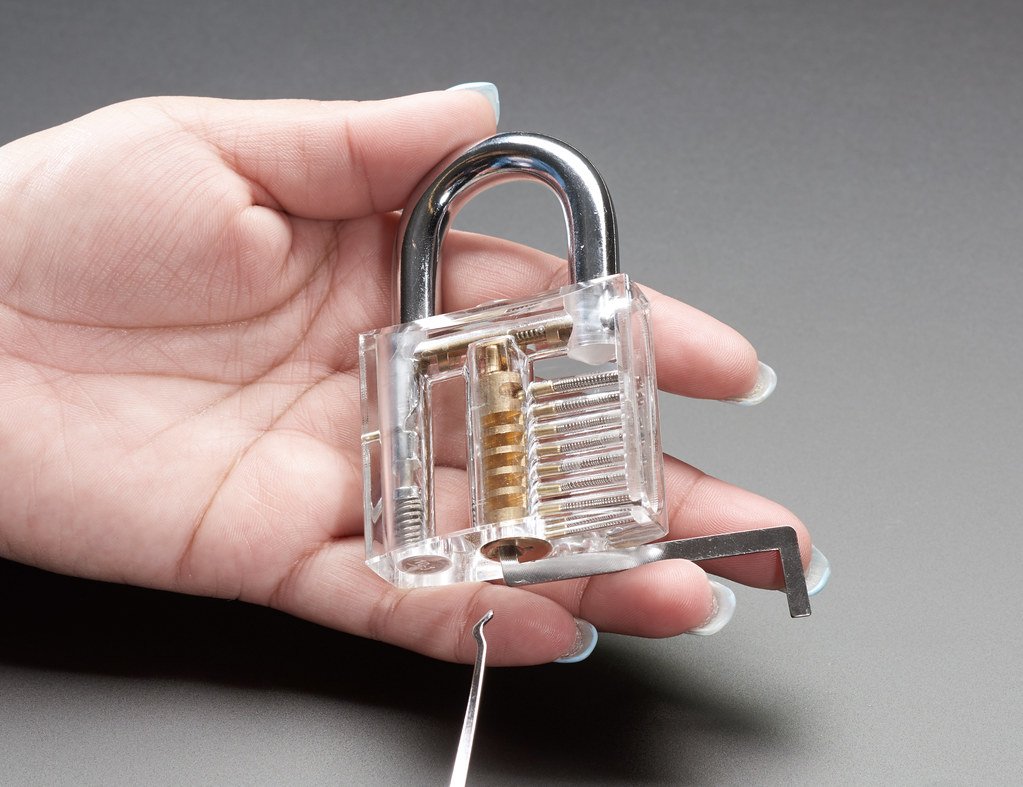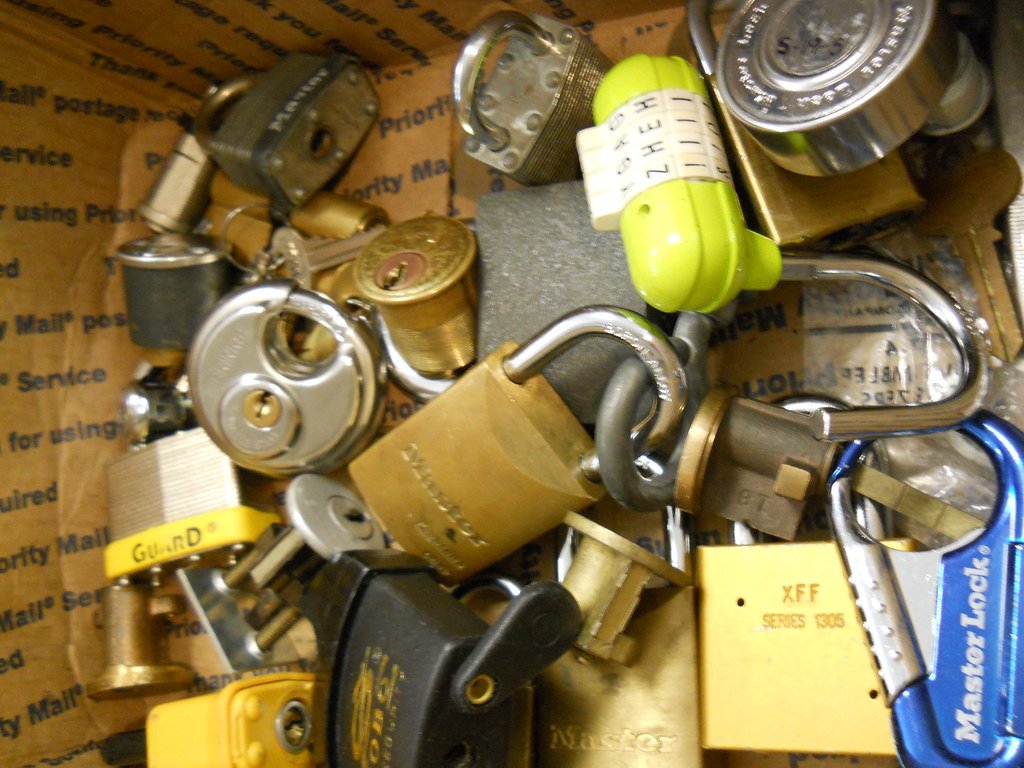Whether it’s the satisfying click as tumblers align or the quiet thrill of decoding secrets, there’s an undeniable allure to the art of lock picking. For some, it is merely a hobby—a way to engage the mind, embrace a challenge and unlock hidden potential. Yet, for others, it evolves into something more; a calling that grows from a love of locks to a profession dedicated to safeguarding the security they so gleefully bypass. As with any craft or skill, the ethical approaches to this fascinating world of locksport diverge, raising profound questions about intent, responsibility, and the delicate balance between curiosity and intrusion. So, on this bewildering journey through the labyrinth of locks, let us explore the different narratives surrounding the ethical pursuit of lock picking, as a hobby or as a profession, and unravel the complex moral fabric that binds its practitioners.
Table of Contents
- Understanding the Ethical Considerations of Locksport
- Exploring Locksport as a Hobby: Skills, Benefits, and Limitations
- Transitioning from Locksport as a Hobby to a Profession: Challenges and Opportunities
- Maintaining Ethical Standards in the Professional Locksport Community
- Balancing Locksport Passion and Ethical Responsibilities
- Q&A
- The Way Forward

Understanding the Ethical Considerations of Locksport
When delving into the fascinating world of Locksport, it is crucial to acknowledge the ethical considerations that come with this intriguing hobby. Locksport enthusiasts are passionate about exploring the mechanisms of locks, but it is important to exercise responsible and ethical behavior to ensure the integrity and reputation of the community.
Respect for Legal Boundaries:
- Never pick a lock that you do not own or have explicit permission to access.
- Observe all local laws and regulations regarding the possession and use of locksmith tools and techniques.
- Understand the boundaries between recreational Locksport and criminal activity, always staying on the right side of the law.
Responsible Knowledge Sharing:
- Engage with other Locksport enthusiasts in an honest and transparent manner, fostering a positive and supportive community.
- Share knowledge and techniques only with those who demonstrate a genuine interest in learning responsibly and ethically.
- Do not use Locksport as a means to teach or encourage illegal activities or support unethical behavior.
Respecting the Locksport Community:
- Be respectful and considerate towards fellow enthusiasts, understanding that everyone may have varying skill levels and experience.
- Avoid damaging or destroying locks unnecessarily, as the primary objective of Locksport is to understand locks, not to destroy them.
- Always give credit to the creators and contributors when sharing lock design concepts or modifications.
By upholding these ethical considerations, Locksport enthusiasts can continue to enjoy this captivating hobby while maintaining a positive reputation and contributing to the growth of the Locksport community.

Exploring Locksport as a Hobby: Skills, Benefits, and Limitations
Locksport, a fascinating and lesser-known hobby, involves the art of picking locks and understanding the mechanisms behind them. It requires a combination of patience, dexterity, and a deep curiosity about how things work. One of the key skills in locksport is the ability to navigate various types of locks, including padlocks, deadbolts, and combination locks, using specialized tools such as lock picks and tension wrenches.
Engaging in locksport can offer a range of benefits. Firstly, it enhances problem-solving abilities, as lock picking requires analyzing and manipulating intricate mechanisms. It also fosters a keen sense of attention to detail and improves hand-eye coordination. Additionally, locksport can be a valuable skill in emergency situations, enabling individuals to regain access to locked spaces when necessary.
Nevertheless, it’s important to consider the limitations of locksport. While it is legal and widely regarded as an intellectual pursuit, it must be practiced responsibly and within the boundaries of the law. It is crucial to obtain proper authorization and only pick locks that you own or have been given explicit permission to practice on. Moreover, participating in locksport should never be used to engage in any unlawful or malicious activities, as the hobby’s intention is to develop skills and understanding rather than exploit them. Always prioritize ethics and respect for the privacy and security of others.

Transitioning from Locksport as a Hobby to a Profession: Challenges and Opportunities
Making the shift from viewing lockpicking as a hobby to pursuing it as a profession presents a unique set of challenges and opportunities for aspiring locksmiths. While previously indulging in a hobby like locksport may have been a means of relaxation and personal satisfaction, transitioning to a professional locksmith brings with it a whole new level of responsibility and commitment.
Challenges:
- Acquiring the necessary skills: Becoming a professional locksmith requires comprehensive knowledge and expertise in various lock systems. Transitioning from a hobbyist to a professional locksmith means investing time and effort in honing the required skills, including understanding different types of locks, tools, and techniques.
- Building a reputation: Establishing oneself as a reputable professional in the locksmith industry can be challenging. Gaining the trust and confidence of potential clients can take time and dedication. It involves proving your capabilities through successful projects and consistently delivering high-quality work.
- Complying with legal and ethical considerations: In a professional capacity, locksmiths are entrusted with the responsibility of securing people’s homes, businesses, and belongings. It is essential to familiarize oneself with local laws, regulations, and ethical guidelines to ensure the proper and legal execution of locksmithing duties.
Opportunities:
Unlocking the potential of transitioning from hobbyist to professional locksmith also presents numerous opportunities, rewarding both personally and financially:
- Career growth and stability: Entering the locksmith industry professionally opens doors to a stable career path. With the increasing demand for reliable security solutions, individuals skilled in locksmithing can find themselves in high demand, providing a sense of security and long-term professional growth.
- Helping others: As a professional locksmith, the opportunity to assist others in need arises frequently. Whether it’s responding to emergency lockouts or providing security consultations, every interaction offers a chance to make a positive impact on individuals, families, and businesses.
- Entrepreneurial prospects: Transitioning to a professional locksmith can also open avenues for entrepreneurial ventures. Starting your own locksmith business allows you to be your own boss, set your own hours, and seek out lucrative opportunities in the market.

Maintaining Ethical Standards in the Professional Locksport Community
When it comes to the professional locksport community, it is essential to uphold strong ethical standards that reflect the values of integrity, respect, and responsibility. By adhering to these principles, we ensure the growth and credibility of our community as a whole. Here are some important guidelines to keep in mind:
- Honesty and Transparency: It is crucial to always be truthful and transparent in all aspects of our professional locksport endeavors. This includes accurately representing our skills, experience, and abilities, as well as disclosing any conflicts of interest that may arise.
- Responsible Disclosure: As locksmiths and locksport enthusiasts, we possess valuable knowledge about vulnerabilities in locks and security systems. It is essential to handle this knowledge responsibly by practicing responsible disclosure when identifying and reporting vulnerabilities to the appropriate parties. This ensures that the information is used for legitimate purposes and does not fall into the wrong hands.
- Mutual Respect: In our interactions within the locksport community, it is vital to show respect to our fellow enthusiasts. This encompasses listening to diverse perspectives, refraining from personal attacks, and maintaining a supportive and inclusive environment for all members.
- Continuous Learning: Ethical standards in the locksport community also involve a commitment to continuous learning. We should embrace opportunities for professional development, stay updated with the latest industry trends, and share knowledge with others.
By embracing these ethical standards, we cultivate a community that values integrity, professionalism, and collaboration. Let us all strive to be ethical advocates of locksport, ensuring the long-term credibility and reputation of our profession.
Balancing Locksport Passion and Ethical Responsibilities
In the world of locksport, enthusiasts often find themselves torn between their passion for picking locks and their ethical responsibilities. It’s a delicate balance that requires careful consideration and a sense of integrity.
Respecting boundaries: Locksport can be a thrilling and addictive hobby, but it’s essential to draw the line and respect ethical boundaries. As an ethical locksporter, it’s crucial to ensure that your skills don’t cross into illegal activities or compromise the security of others. Always ask for permission before attempting to pick a lock, and avoid practicing on locks that are currently in use or protected by law.
Community engagement: Being part of the locksport community opens up opportunities to learn, share knowledge, and engage with other enthusiasts who understand the intricacies of the hobby. Actively participating in ethics discussions and training events can further enhance your understanding of the responsible and ethical aspects of locksport.
Educating others: One way to balance your passion for locksport with ethical responsibilities is by educating others about the importance of proper lock security. By sharing your knowledge and promoting awareness, you can help prevent illegal activities and contribute positively to the locksmithing industry.
Q&A
Q: What is locksport and how can it be approached ethically?
A: Locksport is the hobby or profession of studying, practicing, and manipulating locks. To approach locksport ethically, individuals should seek proper training, abide by legal boundaries, and avoid using acquired skills for malicious purposes.
Q: What steps should one take to pursue locksport ethically as a hobby?
A: To pursue locksport ethically as a hobby, beginners should focus on education, joining reputable lockpicking organizations, obtaining proper tools, and always respecting the laws and property rights of others.
Q: Can locksport be turned into a profession?
A: Yes, locksport can be transformed into a profession. Many professional locksmiths, security consultants, and forensic experts started as locksport hobbyists. Building a solid foundation of knowledge and experience is crucial for a successful transition.
Q: How can one ethically practice locksport professionally?
A: Ethical practice in the professional realm of locksport requires individuals to acquire proper certifications, adhere to industry standards and legal guidelines, maintain client confidentiality, and utilize their skills to enhance security rather than compromise it.
Q: What are some potential ethical challenges when pursuing locksport as a hobby?
A: Ethical challenges in locksport as a hobby may include resisting the temptation to experiment on locks not owned by the individual, refraining from engaging in illegal or unauthorized activities, and fostering a community that prioritizes ethical conduct.
Q: Are there any ethical considerations unique to locksport as a profession?
A: Locksport professionals must handle sensitive information responsibly, respect client privacy, avoid conflicts of interest, and constantly update their skills to ethically address evolving security challenges.
Q: How can locksport enthusiasts contribute positively to society?
A: Locksport enthusiasts can contribute positively to society by sharing their expertise through teaching, organizing educational events, and helping raise awareness about the importance of security. They can also collaborate with other security professionals to find vulnerabilities and improve overall safety.
The Way Forward
As we reach the end of our journey exploring the ethical dimensions of the captivating world of locksport, we hope to have shed light on the delicate balance between approaching it as a hobby versus a profession. Throughout this article, we have endeavored to present a fair and unbiased view, allowing readers to form their own perspective on this age-old practice.
Locksport, infused with curiosity and thrill, has fascinated enthusiasts for generations. It encompasses a unique blend of technical prowess, analytical thinking, and respect for the mechanisms that protect our lives. Yet, we must remember that the choices we make in this realm can have ethical implications, both for ourselves and for society as a whole.
Embracing locksport as a hobby offers the freedom to explore and nurture our passion, all while respecting the boundaries established by law and moral guidelines. It allows us to satisfy our hunger for knowledge, harnessing the art of picking locks as a creative outlet. In doing so, we cultivate a sense of responsibility, treating locks with the respect they deserve while honing our skills in a safe and controlled environment.
Conversely, turning locksport into a profession requires a diligent commitment to professionalism, ethics, and legality. By becoming part of the locksmithing industry, we wield our expertise to serve the greater good, ensuring security and safeguarding the public’s trust. In this path, we must always navigate the fine line between exploiting our knowledge for personal gain and utilizing it to uphold justice and safety.
Regardless of the path we choose—be it a passionate hobbyist or a dedicated professional—we must bear in mind the principles that ought to underpin our endeavors. Respect for privacy, the consent of others, and the commitment to never misuse our skills are paramount in preserving the integrity of locksport.
As we draw the curtain on this exploration, we encourage you to reflect on your own relationship with locksport and the ethical considerations it entails. Whether you embark on this journey driven by curiosity or dare to make it your profession, always remember that responsibility accompanies mastery. With the right mindset, a dedication to ethics, and a deep appreciation for the artistry of locks, we can all unlock the potential of locksport while preserving the integrity of this captivating pursuit.
As an affiliate, my content may feature links to products I personally use and recommend. By taking action, like subscribing or making a purchase, you’ll be supporting my work and fueling my taco cravings at the same time. Win-win, right?
Want to read more? Check out our Affiliate Disclosure page.